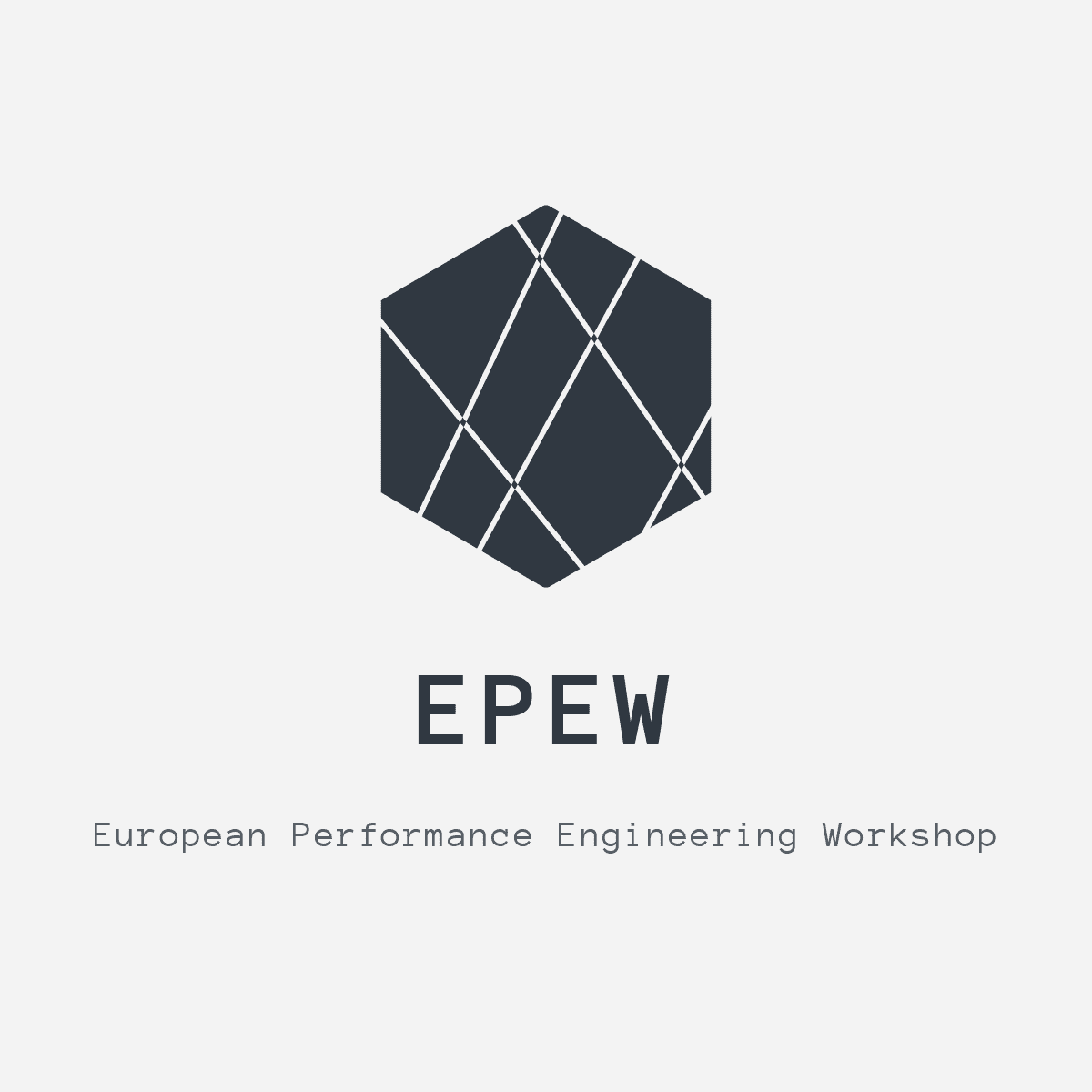EPEW 2026
The European Performance Engineering Workshop is an annual event that brings together researchers working across all aspects of performance engineering. EPEW 2026 considers the concept of performance in the broadest possible sense, encompassing Quality of Service, scalability, reliability, availability, systems management, and related dimensions. We are particularly interested in contributions that propose new ways to evaluate complex systems, as well as novel uses of established models, methodologies, and techniques when applied to emerging systems, networks, and computer-based services.
EPEW 2026 welcomes submissions addressing the performance evaluation of systems from theoretical foundations to practical applications. Particular attention is given to the use of performance evaluation methodologies in emerging domains such as cyber-physical systems, mobile platforms, the Internet of Things (IoT), fog and edge computing, large-scale cloud infrastructures, smart grids, and security-critical environments.
Call for papers
Scope and topics
Topics of interest include, but are not limited to, the following topic areas:
Theoretical advances in performance modelling and evaluation:
- Probabilistic, stochastic, or performability models, such as Queueing Networks, Petri Nets, and Process Calculi
- Analytical and numerical solution techniques and simulation techniques
- Quantitative model checking, equivalence checking, and static analysis
- Context-aware modelling and analysis techniques
- Machine learning and deep learning-based approaches for performance evaluation and analysis
- Multiformalism and Multiparadigm modelling approaches
System, software, and network performance engineering:
- Performance-oriented design, architecture, implementation, deployment, monitoring, and maintenance
- Constraint-based and model-driven system design
- Performance analysis, simulation, and experimental design
- Benchmark design and benchmark-based evaluation and monitoring
- Quality of service, and trade-offs between security, performance, dependability, energy consumption, usability, etc.
- Software performance modelling languages, model composition, and tool interoperability
Case studies:
- Cloud systems, Hybrid Cloud, and Fog Computing Internet of Things
- Cyber-physical systems
- E-health systems
- Blockchain and Cryptocurrency applications
- Sharing services such as carshare and rideshare
- Electric vehicles and battery modelling
- Large-scale systems and scalability analysis of systems, robustness analysis of systems, resilience analysis of systems
- Industrial case studies, experience reports, and tools, with a solid analysis and theoretical background
Submissions
Authors are solicited to submit full papers of at most 15 pages for publication in the proceedings. The page limit includes tables, figures, and references. All papers must be submitted electronically in Springer’s LNCS format (in PDF format) using EasyChair. Springer encourages authors to include their ORCIDs in their papers. Authors should consult Springer’s authors’ guidelines and use Springer’s LaTeX templates for the preparation of their papers. Submitted papers not complying with the above guidelines may be rejected without undergoing review. All submitted papers will be reviewed by the program committee based on technical quality, relevance, significance, and clarity.
Best presentation award
The EPEW 2026 organising committee will select the best paper presentation, for which a certificate will be presented at the end of the workshop. Note that the selection is based on both content and presentation.
Important dates
- Submission site opens: 1 January 2026
- Paper submission: 1 February 2026
- Acceptance notification for full papers: 15 March 2026
All deadlines are UTC-12, anywhere on Earth.
Organising Committee
Technical Programme Committee Chairs
- Dieter Fiems, Ghent University, Belgium
- Mauro Iacono, Università degli Studi della Campania “Luigi Vanvitelli”, Italy
Technical Programme Committee
- Salvador Alcaraz, Miguel Hernandez University, Spain
- Paolo Ballarini, Centrale Supelec, France
- Simona Bernardi, University of Zaragoza, Spain
- Marco Bernardo, University of Urbino, Italy
- Peter Buchholz, Dortmund University, Germany
- Laura Carnevali, University of Florence, Italy
- Davide Cerotti, Università del Piemonte Orientale, Italy
- Daniele Di Pompeo, University of L’Aquila, Italy
- Ioannis Dimitriou, University of Ioannina, Greece
- Josu Doncel, University of the Basque Country, Spain
- Dieter Fiems, Ghent University, Belgium
- Jean-Michel Fourneau, University of Versailles, France
- Pedro Pablo Garrido Abenza, Miguel Hernandez University, Spain
- Marco Gribaudo, Technical University of Milan, Italy
- Nikolas Herbst, University of Würzburg, Germany
- Mauro Iacono, Università degli Studi della Campania “Luigi Vanvitelli”, Italy
- Alain Jean-Marie, INRIA, France
- Lasse Leskelä, Aalto University, Finland
- Francesco Longo, University of Messina, Italy
- Marco Paolieri, University of Southern California, USA
- Tuan Phung-Duc, University of Tsukuba, Japan
- Agapios Platis, University of Aegean, Greece
- Anne Remke, Westfälische Wilhelms-Universität Münster, Germany
- Marco Scarpa, University of Messina, Italy
- Markus Siegle, University of the Bundeswehr Munich, Germany
- Ioannis Stefanakos, University of York, UK
- Miklos Telek, Budapest University of Technology and Economics, Hungary
- Nigel Thomas, University of Newcastle, UK
- Benny Van Houdt, University of Antwerp, Belgium
- Marco Vieira, University of North Carolina, USA
- Joris Walraevens, Ghent University, Belgium
- Armin Zimmermann, Technische Universität Ilmenau, Germany
Contact
For any questions, please don’t hesitate to contact us at: epew2026@easychair.org
